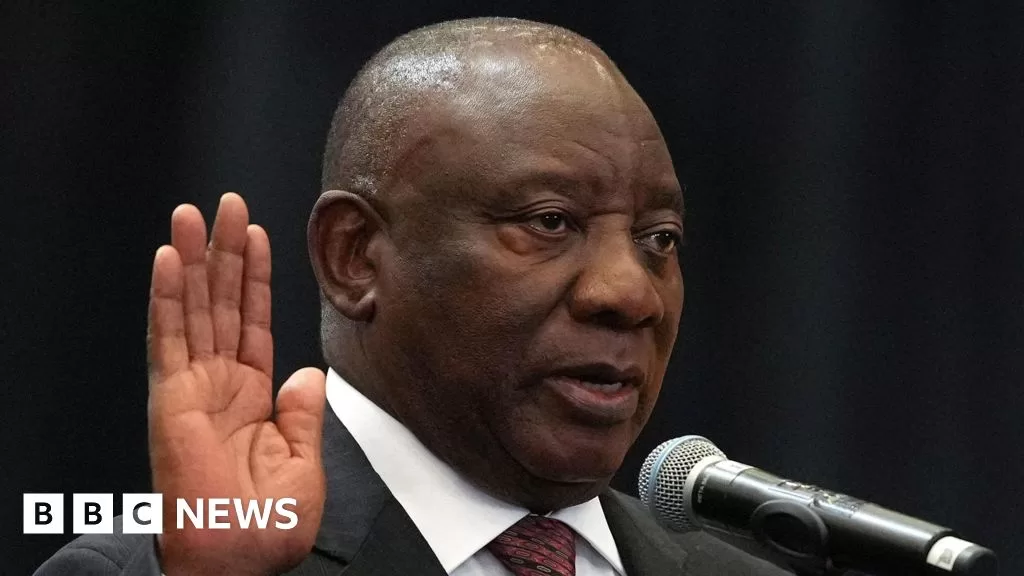South Africa’s parliament has re-elected Cyril Ramaphosa as the country’s president following a landmark coalition deal between the governing African National Congress (ANC) and opposition parties.
The new government of national unity combines Mr Ramaphosa’s ANC, the centre-right Democratic Alliance (DA) and smaller parties.
The agreement was hashed out on a day of high political drama, which saw South Africa’s National Assembly sitting late into the night for votes to confirm who will hold power in the new administration.
Earlier, a deal was struck following weeks of speculation about who the ANC would partner with after losing its parliamentary majority for the first time in 30 years in last month’s elections.
It got 40% of the vote, while the DA came second with 22%.
ANC secretary-general Fikile Mbalula called the coalition deal a “remarkable step”.
It meant Mr Ramaphosa – who replaced Jacob Zuma as both president and ANC leader following a bitter power struggle in 2018 – was able to retain power.
The ANC had always polled above 50% since the country’s first democratic elections in 1994, which saw Nelson Mandela become president.
However, support for the party has been dropping significantly because of anger over high levels of corruption, unemployment and crime.
An alliance between the centre-right DA and the ANC is unprecedented as the two parties have been rivals for decades.
The ANC led by Nelson Mandela led the campaign against the racist system of apartheid in 1994 and won the country’s first democratic elections.
The DA’s critics have accused it of trying to protect the economic privileges the country’s white minority built up during apartheid – a charge the party denies.
Addressing lawmakers late on Friday in Cape Town, John Steenhuisen, the leader of the DA, said: “Today is a historic day for our country, and I think it is the start of a new chapter.”
The National Assembly in Cape Town swore in a speaker from the ANC and the post of deputy speaker went to the DA.
